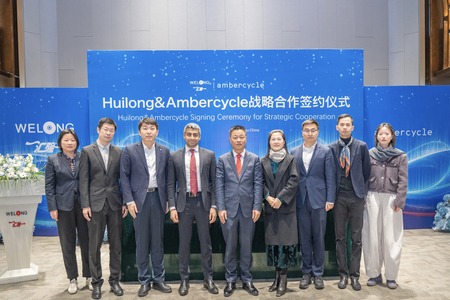Pakistan textile industry cannot celebrate announcement of textile policy with energy issue unaddressed
YarnsandFibers News Bureau 2015-02-12 15:00:00 – LahoreWith the new textile policy 2014-19 being announced, according to All Pakistan Textile Mills Association chairman S M Tanveer taking the textile exports to $26 billion in next five years would remain a dream in case the energy supply remained situation dismal, particularly in Punjab and hence the proposal to make availability of electricity at 8 cents per unit for feasibility of textile industry in Pakistan has been put forward.
Punjab-based textile industry are unable to compete with mills in other provinces, as the Punjab-based textile industry, which is 70 percent of the total in country, is operating at a cost differential of $1 billion compared with other provinces. Affordability has become a real issue today hence it will be difficult to compete with regional competitors.
It would be a miracle to sustain the present level of $13 billion under the prevalent energy supply situation.
S M Tanveer said that the industry cannot celebrate announcement of textile policy that speaks about uninterrupted energy supply but the irony of situation can be judged from the fact that the SNGPL suspended gas supply on the same day.
He wondered how the SNGPL ensured gas supply to the Punjab-based textile industry during peak winter, as it has withdrawn gas supply when demand for space heating has come to an end. Already, SNGPL restricted gas supply to four and half hours a day against the PM directive of eight hours a day gas supply during last sixty days.
He said that he was unable to understand why the government was not serious in sustainable growth of textile industry, particularly in Punjab.
The value added industry has secured substantial export orders from the Heimtextile exhibition but they have no idea whether to meet the deadlines under given circumstances.
On the other hand, he said that India has started dumping fine count yarn to Pakistani market, threatening the viability of some 30 mills producing fine count cotton yarn. India has been extending rebates and other facilities to its industry for extenuating the impact of GSP plus to Pakistan.
According to him, the industry was not clear about its costing due to the prevalent uncertainty. On top of that, the government has imposed regulatory duty on furnace oil with drop in its price internationally. Not only this, the government has also imposed duty on import of furnace-based engines to make situation more difficult for industry.
The government should decide whether it was serious in continuation of textile industry in Pakistan and inform once and for all instead of switching on and switching off supplies time and again. It must seriously dealing with energy issues.
Market Intelligence
Ask for free sample Report

experience
Customer Base
dedicated team
Countries Served Worldwide









